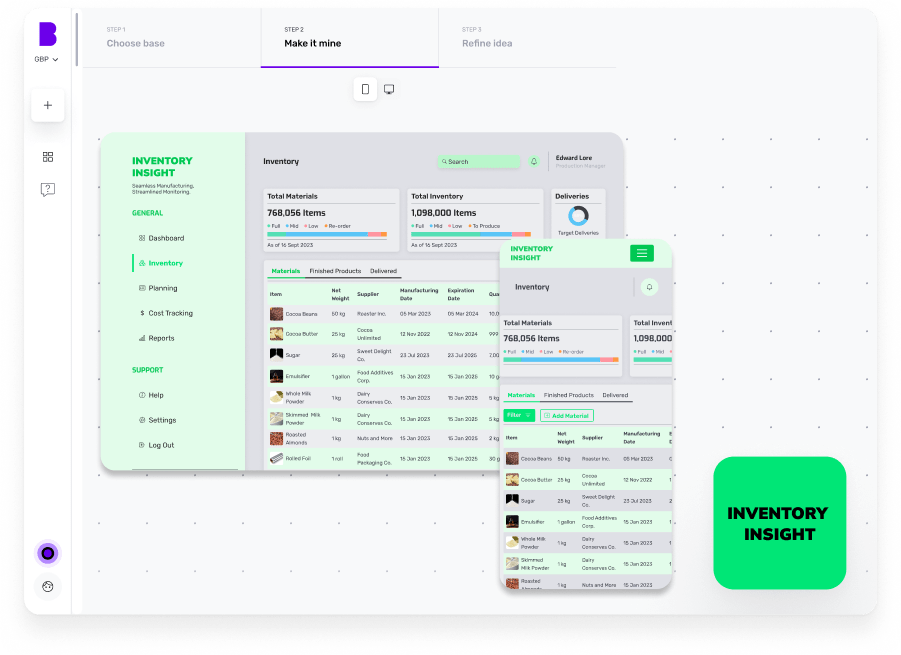In an era where people favour smarter phones, smarter televisions and even smarter fridges, the shift towards smarter vehicles is seemingly inevitable. Thanks to Artificial Intelligence (AI), the automotive industry has undergone a groundbreaking transformation.
Computerised functions like cruise control and anti-lock braking systems have long been central to modern automobiles, but advances in AI promise to usher in the next step-change in automotive assist technology. We're already seeing auto manufacturers like Tesla, Mercedes Benz and Volvo start to implement AI into their vehicles for a smarter user experience.
According to research by Zion, the value of AI’s contribution to the automotive market is projected to reach $735 billion by 2032. Spiking revenues indicate the growth and potential of AI in enabling the future of the automotive sector.
In this blog, we’ll discuss the role of AI in transforming the automotive industry, its benefits, the challenges it faces and more. Plus, we'll also give you an insight into consumer perspectives on AI in the automotive industry.
Let’s get started!
How is AI used in the automotive industry?
Did you know that by 2040, it’s expected that almost 33 million autonomous vehicles will be on the roads. These are all powered by advanced AI systems. This large-scale adoption of AI-powered vehicles will lead to changes from autonomous driving to controlled environmental impacts and more. Let’s look closer at the ways AI is being used in automotive industry. 👇🚘
AI in automobile manufacturing
Before the advent of AI, automobile manufacturing was a labour-intensive process that required constant human oversight at every step. With the introduction of AI and robotics, much of the production process has been automated, significantly reducing the need for manual intervention.
AI-driven systems now handle quality checks and supply chain management, minimising downtime and waste. AI-powered cameras and sensors detect defects with accuracy, ensuring that only the highest-quality vehicles reach the market.
Autonomous driving
AI is at the heart of autonomous driving technology, enabling vehicles to navigate and operate using a combination of sensors, cameras and Machine Learning algorithms. These help in perceiving the environment, interpreting data and making real-time decisions by detecting obstacles, reading traffic signs and adjusting to changing road conditions to move safely.
Advanced driver assistance systems (ADAS)
AI in ADAS systems uses sensors to provide features such as lane departure warnings and automatic emergency braking. This can alert drivers to potential hazards and even take corrective actions to prevent accidents. For example, AI can detect pedestrians, other vehicles and obstacles, and then trigger alerts or even take corrective actions like automatic braking or lane correction.
Predictive maintenance
AI is revolutionising vehicle maintenance through predictive maintenance systems. They use Machine Learning algorithms to analyse data from various sensors and diagnostic tools, identifying patterns that indicate potential breakdowns before they become critical. This helps in timely detection and maintenance, which lowers maintenance costs but also extends the lifespan of vehicles.
Benefits of AI in the automotive industry
With the start of AI, ML, IoT and more, the automotive industry has changed. Let’s look at how AI is improving outcomes.
Improved safety
A report by McKinsey found that AI has reduced road-traffic accidents by 40%. AI algorithms have helped in processing data from sensors and cameras to detect and prevent accidents, making driving safer for everyone. It has also enabled lane departure warning (LDW), autonomous emergency braking (AEB) and more to alert drivers of potential hazards ahead.
Predictive maintenance
AI can predict when parts are likely to fail from a whole range of data, allowing for proactive maintenance. This helps in reducing the likelihood of breakdowns and vehicle downtime and extends the life of parts, boosting the overall performance of the vehicle.
Improved driving experience
AI-powered voice assistants can understand and respond to driver and passenger commands, making the in-car experience more intuitive. It can also personalise entertainment and information systems based on user preferences and behaviour and even monitor the driver’s health and alert them to potential issues, such as drowsiness or distraction.
Autonomous driving
Maybe autonomous driving once seemed like a far-off dream or an image from your favourite science fiction novel. But, with advances in AI, it’s becoming a reality. Autonomous driving is starting to ease driver's tasks, reduce accidents and improve mobility for those who face physical disabilities.
Supply chain optimisation
According to McKinsey, automobile industries using AI have seen up to a 20% increase in production efficiency. AI has boosted manufacturing by predicting and optimising delivery routes and schedules, finding problems in parts during the manufacturing process and reducing and eliminating errors in the final product.
Use cases of AI in the automotive industry
Here’s a list of different use-cases and examples of AI in the automotive industry. 👇
Autonomous driving - Tesla's Autopilot and Waymo's self-driving taxis
AI algorithms used by Tesla and Waymo, process data from cameras and other sensors to navigate roads, recognise traffic signs and make real-time driving decisions. This technology can reduce accidents, improve traffic flow and provide easy mobility.
Predictive maintenance - BMW's condition-based service (CBS) system
AI used in BMW’s CBS system analysed data from vehicle sensors to predict when parts of the vehicle are likely to fail. This allows for proactive maintenance, reducing the risk of breakdowns and extending the lifespan of the vehicle.
Personalised in-car experiences - Mercedes-Benz MBUX
AI-enabled Mercedes Benz cars can learn what drivers and passengers like. This can help them customise infotainment, climate control, make seat or mirror adjustments and other settings in the car. For example, it can suggest music based on the driver's mood or adjust the temperature based on past preferences.
Challenges in implementing AI in the automotive industry
Implementing AI in the automotive industry faces many challenges.
Technical complexity and integration
Autonomous or self-driving cars need a lot of data. This data is collected from a mix of sensors and integrating and processing this data in real-time often involves complex hardware and processes. For example, for a self-driving or AI enabled car to respond quickly to a sudden object on the road which might cause an accident needs several tests to ensure complete reliability.
Public trust and acceptance
Building public trust in AI technologies, particularly in autonomous driving, is essential. Concerns about safety, reliability and job displacement often lead to resistance from consumers and stakeholders.
Auto manufacturers have a big task in making their systems safe enough, and persuading the public that their technologies make driving safer, even in the event of a critical failure.
Ethical decision-making
AI systems must make ethical decisions, especially in critical situations. For example, how should an autonomous vehicle prioritise safety in the event of an unavoidable accident?
Developing clear ethical guidelines, involving policymakers and conducting thorough ethical reviews can help address these concerns.
Data privacy and security
Vehicles generate a vast amount of data, including personal information and driving patterns. Making sure this data is secure and private is crucial to preventing data breaches and unauthorised access. Implementing strong encryption, secure communication protocols and regular security audits can help protect data.
Consumer perspectives on AI in automotive
Consumer perspectives on AI in the automotive industry are diverse and can be influenced by a range of factors, including safety, convenience, trust and more. Companies that prioritise transparency, safety and user experience are more likely to gain consumer trust and support.
Here’s a detailed look at how consumers view AI in automotive:
Safety concerns
Many consumers are concerned about the safety of AI-driven technologies, especially autonomous vehicles. They worry about the reliability of AI systems and the potential for accidents. However, extensive testing, transparent communication about safety features and public education campaigns can help build trust.
Convenience
People are often attracted to the convenience and efficiency that AI can offer. Features like personalised in-car experiences can make driving more enjoyable and predictive maintenance can boost consumer interest.
Privacy and data security
There are concern about the collection and use of personal data by AI systems. Consumers are often worried about data breaches, making people resist and lose trust in AI technologies. However, adopting data privacy measures, being transparent about data usage and providing clear opt-out options can help alleviate these concerns.
Usability
Users want AI technologies to be friendly and intuitive. Complex or difficult-to-use systems with poor user experience can lead to dissatisfaction and low adoption rates. Designing user-friendly interfaces that provide clear instructions and offer customer support can improve the user experience.
Reliability and dependability
Consumers expect AI systems to be reliable and dependable. Frequent malfunctions or errors can discourage consumers from adopting AI technologies. Repeated testing, continuous improvement and transparent communication about system performance can build confidence.
Conclusion
The integration of AI into the automotive industry isn't just a technological advancement but a transformative shift that's redefining the way we interact with vehicles.
From the development of fully autonomous vehicles to the enhancement of safety and maintenance, AI is driving innovation at every turn.
As technology continues to evolve, we can expect even more sophisticated and efficient vehicles that not only meet but exceed our expectations.
This is where working with the best in the industry significantly increases your chances of successfully building a high-quality app.
Builder.ai helps you build your software efficiently. We:
✅ - Assign you a dedicated project manager, who keeps all stakeholders on your app project aligned and on track; you never need to speak to a software developer or write a single line of code
✅ - Speed up development time by giving you access to a comprehensive library of reusable features, fitted together by AI
✅ - Give you upfront costs and competitive timelines so your project stays under control
If that’s something you’d like to explore, please get in touch 👇
Create robust custom software today
100s of businesses trust us to help them scale.
Book a demoBy proceeding you agree to Builder.ai’s privacy policy
and terms and conditions

FAQs
How is AI used in the automotive industry?
AI in the automotive industry enhances safety through advanced driver assistance systems (ADAS), optimises vehicle maintenance, personalises driving experiences and improves manufacturing efficiency and supply chain management.
How does AI improve safety in the automotive industry?
AI improves safety through real-time monitoring, predictive analytics and advanced driver assistance systems (ADAS) that reduce accidents and enhance vehicle control.
Can AI in automotive enhance the driving experience?
Yes, AI personalises driving by learning preferences, adjusting settings and providing tailored recommendations, making the experience more comfortable and intuitive.
Which cars use AI?
Many modern cars, such as Tesla, BMW and Mercedes-Benz, incorporate AI for features like autonomous driving, advanced safety systems and personalised user experiences.
Want to start your app project with us?
Book a demoSpeak with one of our product experts today.
By proceeding you agree to Builder.ai’s privacy policy and terms and conditions

Harsh Priya is a writer at Builder.ai. She has over 3 years of experience in content marketing, spanning across fields like AI, Machine Learning, software, tech, health and lifestyle. With a background in English literature and a fervent passion for research and analysis, Harsh transforms complex concepts into compelling and insightful narratives that educate and drive significant reader engagement.










 Facebook
Facebook X
X LinkedIn
LinkedIn YouTube
YouTube Instagram
Instagram RSS
RSS


